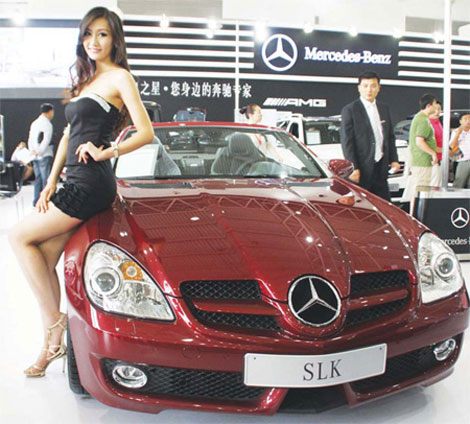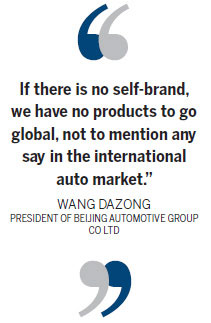Cars
Mercedes-Benz to open second factory in Beijing
Updated: 2011-03-04 10:47
By Wang Chao
 |
|
A Mercedes-Benz car on display at a Beijing auto show. The firm said it will be adding another manufacturing plant in Beijing. Provided to China Daily |
Mercedes-Benz will be adding another manufacturing plant in Beijing and another 300,000 cars to its annual production capacity in China, according to Beijing Automotive Group Co Ltd (BAIC), its joint-venture partner.
"Before the end of this year, the assets of Beijing Mercedes-Benz will be integrated into the BAIC," said Wang Dazong, president of the BAIC.
Mercedes-Benz and BAIC agreed to begin a joint venture in 2006 but profits were hard to come by until last year, when it sold more than 50,000 cars. That is a dramatic increase from 2007, when 7,000 cars were sold.
The announcement of the new plant was seen by industry experts as a sign that BAIC is continuing to expand.
"Beijing is not a paradise for every industry since the costs are high, so we will leave high value-added series and mid-to-high level vehicles production in Beijing, and shift other models to other bases," Wang said.
In 2010, BAIC sold 1.5 million automobiles and achieved 11 billion yuan (1.2 billion euros) in profits, a year-on-year increase of 75 percent. It is the only State company in Beijing that earned more than 10 billion yuan a year.
In the past few years, BAIC has been planting bases across the country, each having distinct functions: the Shunyi factory in Beijing manufactures high-end cars, a Zhuzhou factory in Central China's Hunan focuses on high-end passenger cars, the Chongqing plant produces economical cars, while the Guangzhou plant explores the southern China market.
Before 2010, BAIC was the only major auto group in China that didn't have its own brands. Though a joint venture with Hyundai is bringing considerable profits to BAIC, Wang said a lack of name brands will be a major problem in the long run.
 |
In 2009, the group acquired Saab, a former subdivision of General Motors, and was planning on making its own products, with more than 20 different models, based on the Saab platform. In 2010, BAIC rolled off its first brand car in Zhuzhou plant, in Central China's Hunan province.
Wang said its overseas expansion is still preliminary. At this moment, commercial cars will be lead the way for BAIC's expansion overseas.
"We are going global, but globalization doesn't merely mean global trade, although it is an essential part. We need to integrate global resources and do more international acquisitions. Currently a lack of talent is still hurting our development. Our goal is to become the world's top 15 auto companies in 2015. By then we will be able to produce 4 million automobiles every year. We have confidence, but we have to address various problems like talent, capital and improve our management skills," Wang said.
Specials

Tea-ing up
More turning to Chinese tea for investment opportunities like vintage wine

A cut above
The ancient city of Luoyang is home to a treasure trove of cultural wonders.

Rise and shine
The Chinese solar energy industry is heating up following recent setbacks in the nuclear sector